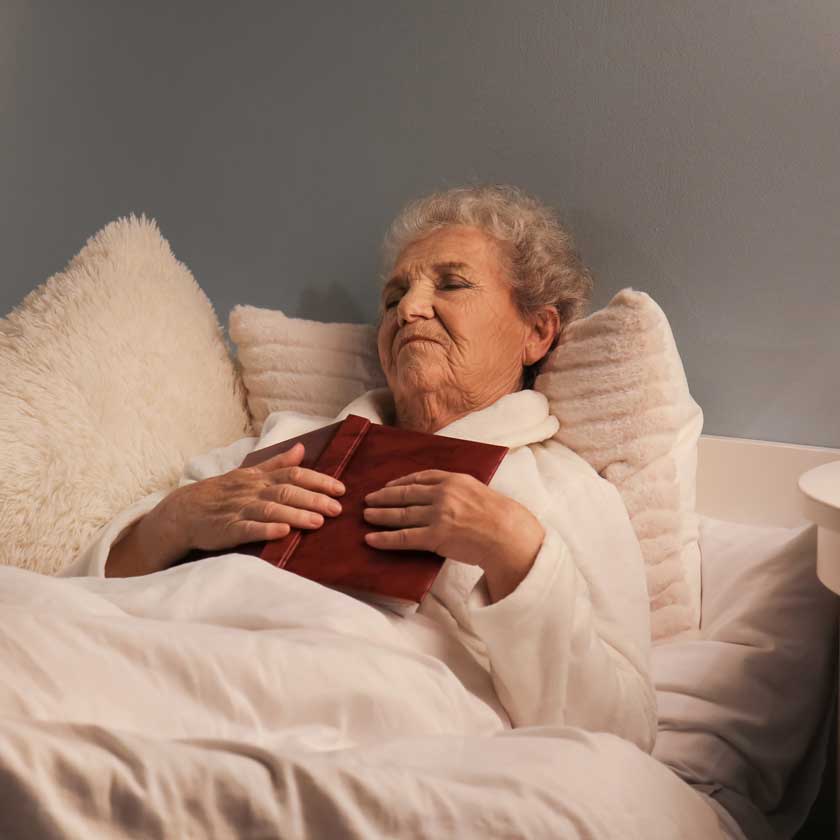What is end of life care?
End of life care is the term used for the support and care people with life-limiting conditions receive in their last years, months, weeks and days of their life.
The aim of end of life care is to help a dying person live as well as possible until they die while supporting family and friends through the difficult time. Often this may involve management of medications to alleviate symptoms understanding that there is no cure.
End of life care involves palliative care, which includes managing the physical aspects of your condition, such as pain and other symptoms, and providing emotional, social and spiritual support in a way that fulfills the patient’s and their family and friends’ needs and wishes. Palliative care takes a holistic approach, caring for the ‘whole’ person.
When does end of life care start and how long does it last?
You should begin to receive end of life care when you need it. When it is needed and how long it lasts can vary greatly from person to person.
Some may have been diagnosed with a terminal illness and are expected to live for many months but end of life is usually offered to people who are likely to pass away within 12 months. Care can be at home, at care homes, hospices or hospitals. Looking for end of life care may seem a negative thing but by planning the right care you can ensure they have the best quality of life that is possible.
For most families they want to ensure that the dying person was treated with dignity, compassion and respect by their care workers and was kept clean and comfortable in familiar surroundings with loved ones close by.

Who is it for?
It can be very difficult to predict when someone is likely to die but end of life care is for people who are considered to be in the last 12 months of their life, including those showing signs of imminent death. This could be:
People with terminal illnesses such as cancer, dementia or motor neurone disease.
A frail person with conditions that mean they are nearing end of life or at risk of suddenly worsening significantly.
Someone with a life-threatening acute condition caused by a sudden catastrophic event i.e. an accident or stroke.
As there are many different scenarios in which a person would be nearing death, end of life care could last for years but equally may be only a few days.
Dementia as a life-limiting condition
Dementia is a life-limiting condition, but it is very difficult to know how long someone with dementia will live for. A person may die from another condition at any stage of having dementia. They may die before their dementia symptoms become very advanced. A person in the later stages of dementia is likely to have a weak immune system and therefore a higher risk of getting infections. One of the most common causes of death for people with dementia is pneumonia caused by an infection.
Who provides end of life care?
Different health and social care professionals may be involved in your end of life care, depending on your needs. For example, hospital doctors and nurses, your GP, community nurses, hospice staff and counsellors may all be involved, as well as social care staff, chaplains (of all faiths or none), physiotherapists, occupational therapists or complementary therapists.
If you are being cared for at home or in a care home, your GP has overall responsibility for your care. Community nurses usually visit you at home and family and friends may be closely involved in caring for you too.
Palliative Care
Although palliative care is included in end of life care, you can receive palliative care before you are thought to be in the last year of your life.
Palliative care is the care and support a person receives to manage an incurable illness, also known as terminal and life-limiting, such as cancer or dementia or other progressive illnesses such as dementia. Palliative care makes you as comfortable as possible by managing your pain and other distressing symptoms
Palliative care includes managing physical symptoms, offering emotional, spiritual and psychological support, social care such as washing and dressing as well as support for family members and friends. It can soothe symptoms like nausea, constipation, sleeplessness and pain allowing your loved one to rest or enjoy activities with the family. It’s about improving quality of life from a mental, physical, social and spiritual perspective, and is relevant at any age and for any serious illness. End of life care is much the same, but specifically refers to those in their final year of life.
Palliative care can be provided to you at any stage of your illness to help you live as well and comfortably as possible and can be provided for years. End of life care is a form of palliative care you receive when you’re close to the end of life.




